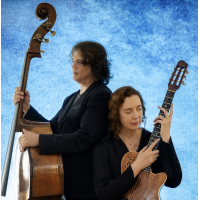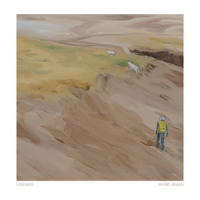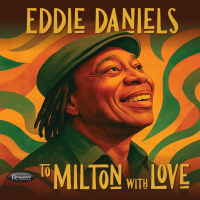Home » Jazz Articles » Album Review » Miles Davis: Merci Miles! Live at Vienne
Miles Davis: Merci Miles! Live at Vienne
This audio is taken from concert footage shot by independent production company, Zycopolis Productions, a film which has never been released in its entirety. Nor is it clear if this CD recording represents the full concert, with Scritti Politti's "Perfect Way," and the extended blues title track from Davis' underrated Star People (Columbia, 1983) that began every other Davis concert that summer, not included in this set. Watch this space for the not improbable Merci Encore Miles! The Complete Live at Vienne CD/DVD box set, at some future date.
The sound quality, it has to be said, is a little patchy. Keyboardist Deron Johnson is often extremely faint, except when soloing, which he does with some panache. Then there is Foley—a fixture of Davis' live bands between '87 and '91—whose "piccolo" bass, tuned an octave higher, is practically inaudible throughout. By contrast, electric bassist Richard Patterson's churning funk lines are a little too heavy in the mix at times.
This sonic imbalance is particularly notable on the dynamic, fifteen-minute opener "Hannibal," which sparks into life when alto saxophonist Kenny Garrett unleashes a searing solo. Johnson picks up the reins in a measured, bluesy response, with Davis' sculpted phrasing supplying contrast of a more minimalist nature. Davis, who plays muted trumpet for most of the concert, is a largely peripheral presence, content to listen—as he always did intently—and to direct the band.
Davis sounds the key motifs and riffs back and forth with Garrett and the ghostly sounding Foley, but he leaves the heavy lifting to his band. His only extended solo of note, on "Human Nature," however, is a fine one, imbued as it is with a spare yet haunting lyricism that would not have seemed out of place on In A Silent Way (Columbia, 1969). In the CD-booklet essay Ashley Kahn observes that you could take a Davis solo from '49 or '91 and "it's the same material, the same feeling, the same Miles" and he has a point.
Davis may have lacked puff in the twilight of his career—trumpeter Wallace Roney carried the load on Davis' famous revisiting of his orchestral music from the Gil Evans years at the Montreux Jazz Festival, just a week after this Vienne concert —but his signature sound during this eighty-minute recording remains intact, albeit a little thinner..
On Cyndi Lauper's "Time After Time" Davis' playing is relaxed, his delivery tender, though when he removes the mute his tone is warmer and more assured. Prince's "Penetration" is a funk-fuelled vehicle for Johnson and Garrett, with Patterson and drummer Ricky Wellman maintaining an unwavering groove.
The second disc—which weighs in at just twenty-five minutes duration—kicks off with "Wrinkle," with Davis, sans mute, at his most animated. What begins as a fairly generic funk exercise suddenly shifts up a gear into double-time terrain, with Davis and Garrett locked in bebop unison to the delight of the crowd. "Amandla" flits between mid- tempo funk— with a striking solo from Johnson—and bluesy balladry, with Davis reunited with his mute. The trumpeter's phrasing—brooding, melancholy and quite gorgeous—evokes the atmosphere of Ascenseur pour l'échafaud (Fontana, 1958), the soundtrack Davis composed for French director Louis Malle's acclaimed film noir.
Another Prince-penned tune, the blues-funk "Jailbait" is little more than a slow groove over which Johnson on Hammond-esque organ and Garrett take turns to stretch out. "Finale" concludes the set with a six-minute drum feature for the hard-working Wellman. On one level it is something of an anti-climax and seems like an odd way to sign off, but then Davis always loved his drummers.
There is plenty of energy coming from both the stage and the audience in what was clearly a significant occasion for those in attendance. Beautifully packaged, this triple gatefold is handsomely adorned on the interior with the colors of the French tricolour -an acknowledgement of Davis' enduring fondness for France. Whilst perhaps not essential listening, Merci Miles!: Live at Vienne certainly has its moments. And it is an important historical document, marking as it does the most complete recording from Davis' final tour, at time of writing.
Track Listing
Hannibal; Human Nature; Time After Time; Penetration; Wrinkle; Amandla; Jailbait; Finale
Personnel
Miles Davis
trumpetKenny Garrett
saxophoneDeron Johnson
pianoFoley
guitarRichard Patterson
bass, electricRicky Wellman
drumsAlbum information
Title: Merci Miles! Live at Vienne | Year Released: 2021 | Record Label: Warner Bros.
Tags
PREVIOUS / NEXT
Support All About Jazz
 All About Jazz has been a pillar of jazz since 1995, championing it as an art form and, more importantly, supporting the musicians who make it. Our enduring commitment has made "AAJ" one of the most culturally important websites of its kind, read by hundreds of thousands of fans, musicians and industry figures every month.
All About Jazz has been a pillar of jazz since 1995, championing it as an art form and, more importantly, supporting the musicians who make it. Our enduring commitment has made "AAJ" one of the most culturally important websites of its kind, read by hundreds of thousands of fans, musicians and industry figures every month.























